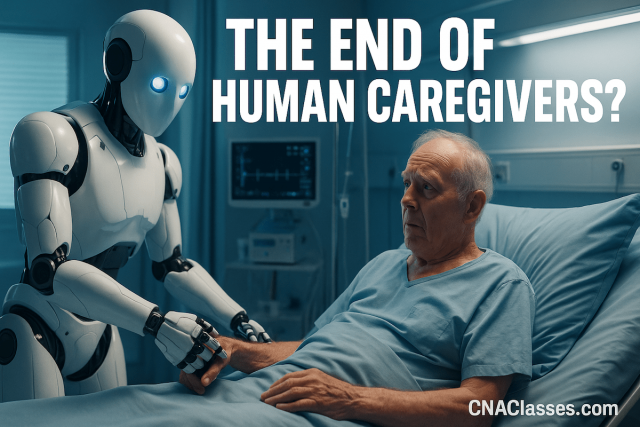New research reveals Certified Nursing Assistants perform 85–90% automation-resistant tasks, far outpacing RNs and doctors
(Isstories Editorial):- Philadelphia, Pennsylvania Aug 26, 2025 (Issuewire.com) – As Goldman Sachs warns that AI could replace 300 million jobs worldwide, and McKinsey projects 375 million workers may be displaced by 2030, one career stands apart as the most automation-proof in America: Certified Nursing Assistants (CNAs).
More on Isstories:
- New Lesbian Memoir Launches Ahead of Valentine’s Day, Offering an Honest Look at Love After Heartbreak
- Curantis Solutions and WorldView Partner to Bring Faster, Clearer Workflows to Hospice and Palliative Care Teams
- Debut Fantasy Novel The Other Kind: The Rise by Yusuf Bhatti Explored.
- Bluecoin IoT Brings AI-Ready Facility Intelligence to FWM India Summit 2026
- Haris Vitalaki Presents Know No Studies: A Poetic Exploration of Freedom, Thought, and Inner Truth
According to new analysis from CNAClasses.com, CNAs perform 85-90% hands-on, automation-resistant tasks daily–nearly double the level of registered nurses (40-50%) and far beyond doctors (20-30%) and radiologists (just 5-10%).
“While much of the workforce is bracing for AI-driven disruption, CNAs are thriving in roles that technology simply cannot replace,” said the CNAClasses.com editorial research team. “This is the fastest, most accessible path to long-term job security in the U.S.”
Key Findings from the Report
- CNAs lead all healthcare roles in automation resistance, with 85-90% of their tasks requiring direct patient care.
- Job security is unmatched: The U.S. Bureau of Labor Statistics projects 216,000 CNA job openings annually through 2033.
- Technology doesn’t replace, it augments: A Stanford study found Japanese nursing homes using robots hired 8-11% more staff, not fewer.
- Fastest entry path to job security: CNA training takes just 4-12 weeks and costs under $2,500, compared to years of schooling and six-figure costs for other “safe” healthcare careers.
- Nationwide demand: CNAs are needed in every U.S. community–from rural nursing homes to major hospital systems–providing geographic flexibility no other healthcare role matches.
Why CNAs Are AI-Proof
Robotics and AI consistently fail at tasks core to CNA work:
- Recognizing subtle patient distress signals
- Safely assisting with transfers and feeding
- Providing emotional comfort during vulnerable moments
Even advanced care robots, costing over $60,000 per unit, require constant human oversight–making human caregivers indispensable.
The full 2025 CNA AI-Proof Jobs Report is available now at www.cnaclasses.com.
This article was originally published by IssueWire. Read the original article here.



















